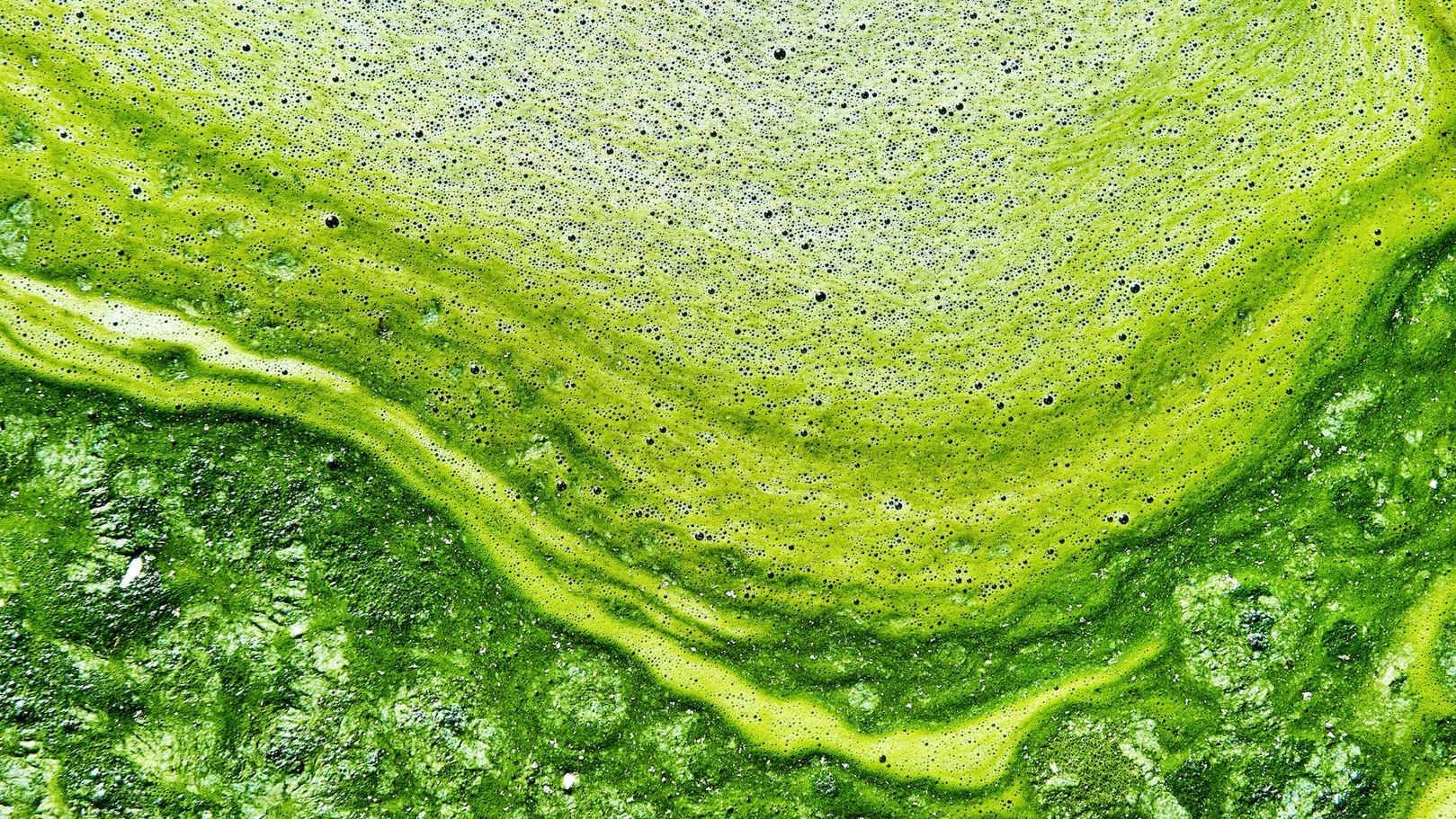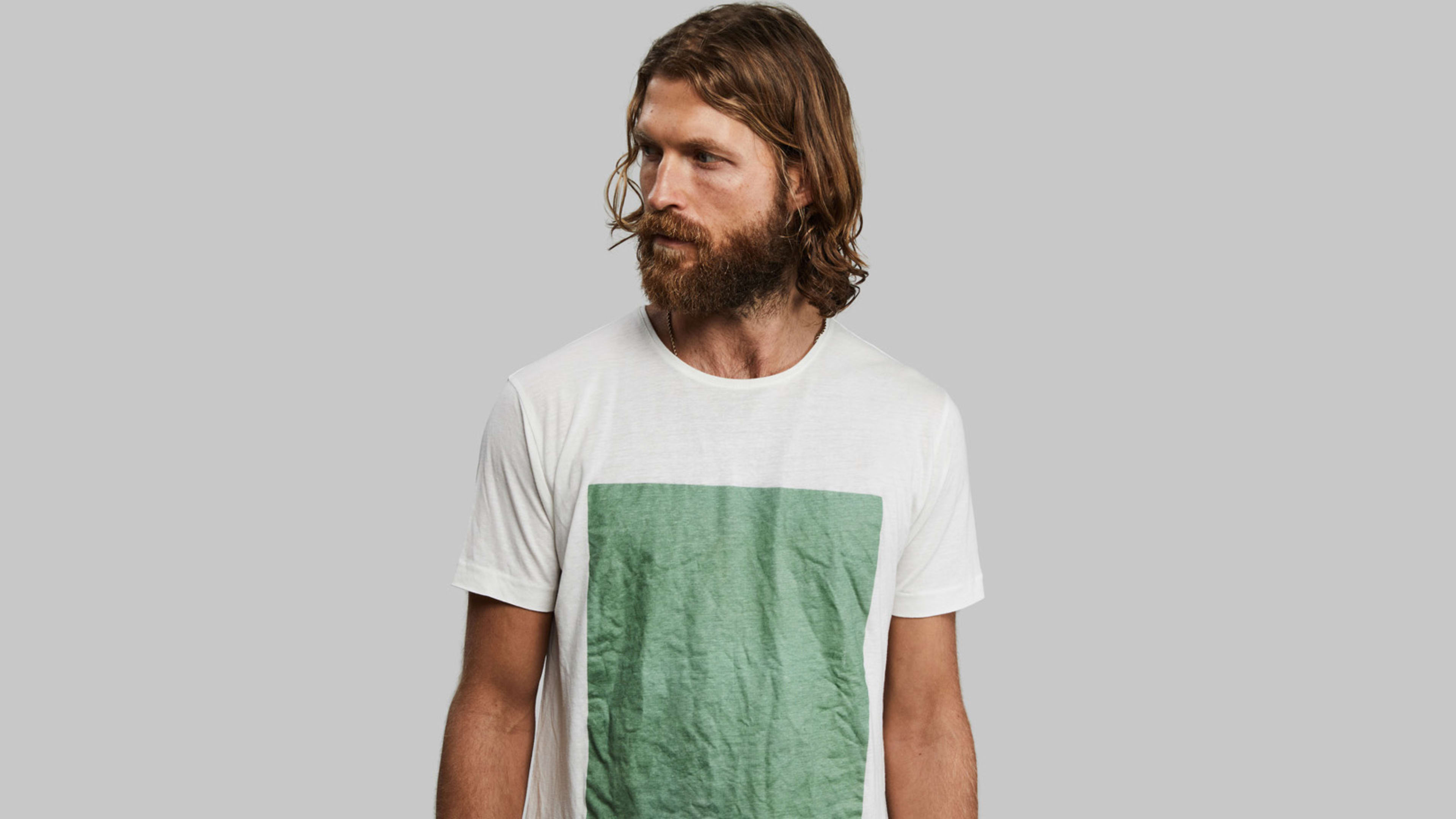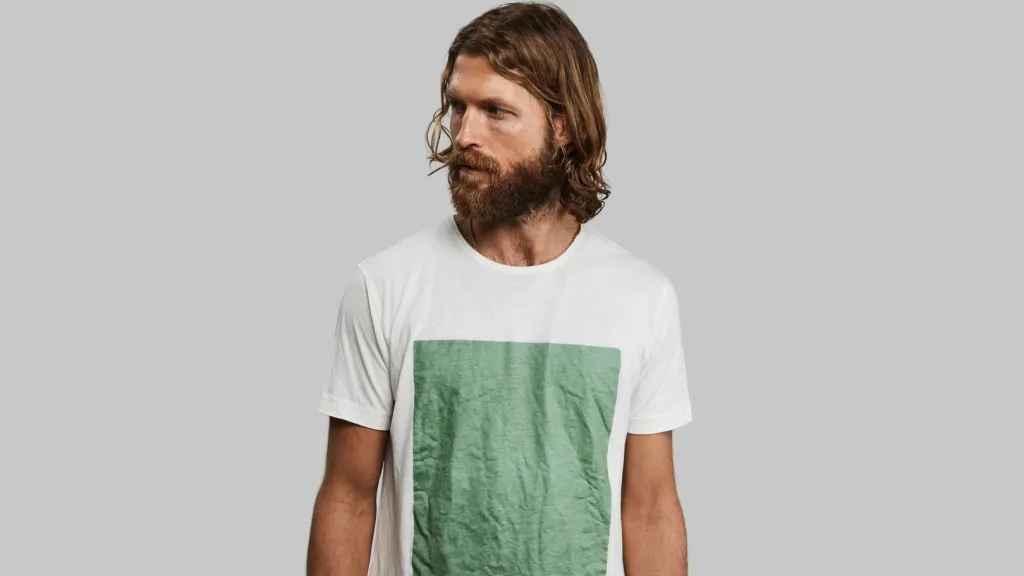Our landfills are crammed with clothes. The EPA estimates that 10.5 million tons of textiles are thrown into them every year, representing 7.6% of all landfill waste. The problem is that most of our clothes contain some sort of synthetic material, which takes hundreds of years to decompose, so they take up space on our planet long after we’re gone.
Natural materials, like cotton and wool, decompose much faster, usually in less than a year. But if you’re looking to reduce your environmental footprint even more, you might want to check out the clothing brand Vollebak. It has created a new product, called the Plant and Algae T-shirt, from sustainably sourced wood and algae that will decompose in 12 weeks. When you’re done wearing it, you can just put it in the compost or bury it in your garden. In a video, they demonstrate how the T-shirt biodegrades, turning into worm food.
[Image: Vollebak]
The fabric itself is made from wood pulp that has been certified sustainable from the Forestry Stewardship Council (FSC), an organization that promotes the responsible management of the world’s forests. Vollebak used eucalyptus, beech, and spruce, which was chipped, pulped, then turned into a fiber.
The T-shirt is decorated with a large green rectangle on the front. Rather than using traditional inks, which are often synthetic, the company made printable ink from algae. The company took algae water and passed it through a filter, creating a soupy algae paste. This paste is dried in the sun to create a fine green powder, which is mixed with a water-based binder to create algae ink.

Vollebak is a five-year-old clothing startup known for using high-tech fabrics. In my previous reporting, Tidball explains that he is thinking about the clothes we might need in the future. For instance, the company recently released a T-shirt made from carbon fiber otherwise used in jet engines, so it is particularly strong and resistant to tearing. It developed a jacket from graphene, which is the most conductive material on the planet. Over time, the company plans to add additional features in the jacket that require electricity, such as heating or light.
But if we’re thinking about the future of clothing, we need to think about the impact it will have on our planet. This T-shirt has been designed to help, rather than hurt, the environment. The algae and trees it is made from remove carbon from the atmosphere, and then, after three months, it turns to soil, helping new plants grow. It’s a good example of how we can use technology not just to create cool, futuristic garments, but also to ensure our planet has a future.
Order it for $110 here.
Recognize your brand’s excellence by applying to this year’s Brands That Matter Awards before the early-rate deadline, May 3.















